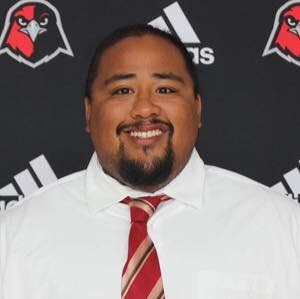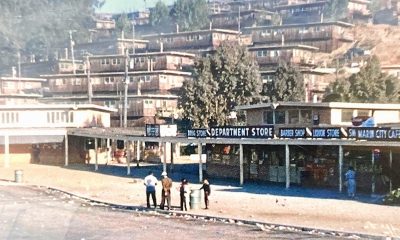Black Voice News
Vulnerable Seniors Remain at Risk, Waiting for State Legislators to Act
BLACK VOICE NEWS — On or about October 15, 2018, a patient with a chronic illness confined to the Legacy Post-Acute Rehabilitation facility in San Bernardino, was observed at about 8:30 am that morning with his/her feeding formula hung on a pole with tubing connected to the resident’s stomach through a feeding pump. The pump was beeping, and the screen indicated a “Hold Error,” i.e. the pump was set in the pause mode.
S.E. Williams | Contributor
On or about October 15, 2018, a patient with a chronic illness confined to the Legacy Post-Acute Rehabilitation facility in San Bernardino, was observed at about 8:30 am that morning with his/her feeding formula hung on a pole with tubing connected to the resident’s stomach through a feeding pump. The pump was beeping, and the screen indicated a “Hold Error,” i.e. the pump was set in the pause mode.
Around 8:55 a.m., a Licensed Vocational Nurse (LVN) entered the room briefly, ignored the beeping of the feeding pump and then sat just outside the door charting. At 9:00 a.m., a Respiratory Therapist entered the patient’s room to check the ventilator settings again the beeping was ignored. At 9:04 a.m., a Certified Nursing Assistant (CNA) entered and repositioned the patient in bed, again ignoring the feeding pump. At 9:33 a.m., a second LVN entered the room to assist the CNA with the patient’s care—both ignored the beeping. At 10:01 a.m., the Housekeeping Supervisor entered the room, checked the brake under the patient’s bed ignored the beeping and left; at 10:05 a.m., an Occupational Therapist entered the room to apply a boot—once again the beeping was ignored. It was not until 10:07 a.m., when a third LVN entered the room, was there any attention paid to the patient’s feeding pump and the fact that it was paused and beeping.
For more than an hour, six professionals entered and walked out of this patient’s room while the patient’s feeding tube beeped—a patient with a condition that required he/she be continuously fed with formula via a tube directly into his/her stomach—yet, the feeding tube flow was in a hold status and the pump continued beeping throughout this period. Sadly, not a single employee who entered the room took any action to investigate, report or restart the pump.
Only after a seventh individual (a third LVN), was asked by the inspector what the screen from the pump indicated and how long the feeding pump was beeping, did she confirm that the machine was—beeping. “The screen indicated ‘Hold Error,’” she promptly responded adding, “I am not sure how long the feeding pump was beeping and on hold—but,” she admitted, “the feeding was supposed to be continuous.”
When the Director of Nursing at the facility was later asked by the investigator what her expectation was for licensed and unlicensed staff when they hear the feeding pump beeping, she replied, “Licensed nurses should check the pump prior to resuming it when the feeding pump is beeping…the unlicensed nurses cannot resume the feeding pump when it is beeping, but they should report it to the LVNs.”
In another example, on or about September 29, 2018 an investigator made an unannounced visit to the Rialto Post Acute Center in Rialto. During the review of a resident’s file the investigator learned of an incident where the patient was found outside the facility.
After reviewing the file, the investigator dug further and learned the resident in question at some point was evaluated for his/her “Risk of Elopement” (unsupervised wandering) and was rated an 8 out of 10, with 10 posing the greatest risk. Within about four days of that assessment, a family member arrived at the Rialto Post Acute Center around 4:14 p.m. to visit and saw the resident outside by a bus stop located in front of the facility.
When confronted, he was described as both “agitated and physically aggressive.” For his safety, the resident was brought back to the facility.” While bringing patient/resident back into the facility, he attempted to bite staff, “He grabbed my shirt, scratch my arm with his nails—when we got back to the facility, he hitting me on my side,” a staff member reported.
Many question what might have happened to the patient if his family member had not happened by and found the resident on the street? According to the report, “This failure had the potential to result in the incident not being investigated, causing adverse reactions, affecting the overall health and safety of the resident…”
The inspector determined that the facility had no documented evidence it ever reported the incident to the California Department of Public Health as required.
These are only two examples of the dozens and dozens of care facility infractions identified through investigations by the California Department of Public Health through its state enforcement actions that often find patients at risk—at times leveling fines—at care facilities locally and up and down the state.
Last May when the state auditor published findings in its report, “Skilled Nursing Facilities: Absent Effective State Oversight, Substandard Quality of Care,” about the quality of care, financial practices, and statewide oversight of California’s skilled nursing facilities concluded, “The state had failed to adequately address ongoing deficiencies related to the quality of care that nursing facilities provide.”
The report found between the years 2006 and 2015, the number of substandard care deficiencies documented at nursing facilities, increased by a stunning and sobering “31” percent.
In addition, the report looked at the role of three companies up and down the state, Brius, Plum, and Longwood, who have increased their net incomes by tens of millions of dollars over the previous decades. “The net income of all three companies grew from less than $10 million in 2006 to between $35 million and $54 million by 2015.”
These companies also earned additional income (collectively well over $330 million) from the government by what some call “double-dipping.” For example, either they or their family members owned many of the vendors from which many of the products, supplies, etc. needed to operate their care facilities were purchased.
Related‑party transactions according to the auditor’s office are common in the industry and legally allowable. Although Medi‑Cal purportedly works to limit the possibility that it might pay for profits from related‑party transactions, it appears it has fallen short as the audit found these companies paid between $37.2 million and $65.7 million to related parties between 2007 through 2015. In most instances, auditors found the companies properly disclosed the related‑party transactions as required.
Among other factors uncovered by state auditors was the Department of Health Care Services’ eligibility system for Medi‑Cal which auditors found had paid billions in questionable Medi‑Cal premiums and claims because it failed to follow up on eligibility discrepancies between the state’s eligibility system and the counties’ eligibility systems.
Auditors recommended the department resolve the discrepancies and recover erroneous payments where allowable. Auditors further noted the department could avoid paying $1.7 billion per year if it resolved the discrepancies.
In February, the California State Auditor presented a special report summarizing audit investigation reports produced by the agency between January 2017 and December 2018 with the goal of assisting the Assembly Budget Committee in identifying issues it may want to explore in subcommittee hearings.
“It is intended to provide transparency in what actions, if any, audited and investigated entities have taken in response to our specific findings and recommendations,” California Auditor Elaine Howle stated.
Several recommendations were made to the state Assembly Subcommittee on Health and Human Services on issues ranging from the Mental Health Services Act funding to what Howle called, “questionable Medi‑Cal payments made by the Department of Health Care Services.”
In her communication to the members of the Assembly Budget Committee she stated, “Our audit efforts bring the greatest return when entities act upon our findings and recommendations.” She further shared how, “. . . the state’s budget process is a good opportunity for the Legislature to explore these issues in a public forum and, to the extent necessary, reinforce the need for corrective action.”
During the initial report period while the number of substandard care deficiencies received at care facilities in California increased by 31 percent, at the same time, the number of state citations from the Department of Public Health decreased by 34 percent—auditors found the Department of Public Health responded slowly to potential patient care violations.
Auditors also found deficiencies associated with noncompliance that caused or were likely to cause serious injury, harm, impairment, or death to residents increased by 35 percent between 2006 and 2015; that the Department of Public Health (DPH) had not fulfilled many of its oversight responsibilities meant to ensure that nursing facilities meet quality-of-care standards; that licensing decisions appeared inconsistent due to DPH’s poorly defined review processes and failures to adequately document rationale for approving or denying license applications.
In addition, auditors determined DPH had not performed all the state inspections of nursing facilities required. The agency also failed to issue citations in a timely manner, among other determinations.
In its initial report the auditor made several recommendations that ranged from calling on the Department of Health Care Service to revise and update the peer groups it uses to set Medi-Cal rates and in doing so to take into consideration the consolidation of the nursing facility industry; to calling on the legislature to reconsider current efforts to improve the quality of care through an existing financial incentive program determined to not be as effective as it could be because as noted, “the program’s budget is limited and only a small number of facilities receive the incentives.”
The audit team recommended the state consider repurposing over $330 million in quality assurance fees to increase both the amount available for such incentives and the impact that financial incentives can have on quality of care.
It also recommended the state modify its nursing facility quality assurance fee by requiring nursing facilities to demonstrate quality-of-care improvements in order to receive reimbursements of all or some portion of their quality assurance fee payments. The purpose of this fee is to enhance federal financial participation in the Medi-Cal program, and to provide additional reimbursement and support for quality improvement efforts in licensed facilities that provide services for the Medi-Cal program.
If nursing facilities do not show improvements, auditors recommended Health Care Services should redistribute their quality assurance fee payments to those nursing facilities that have improved. In an effort further aimed at improving the quality of patient care, the auditor recommended the department increase citation penalty amounts each year by—at minimum—the cost of inflation.
In total, the audit team made 12 recommendations to the legislature and state departments on this issue. To date, the legislature has only enacted legislation on one issue, five are pending and to date the legislature has failed to act on half of them.
Every day in the Inland Empire and across the state tens of thousands of elderly and disabled Californians rely on skilled nursing facilities to provide them 24 hour inpatient care yet the system appears fraught with patient risks, operational irregularities and waste.
In California the oversight responsibilities for nursing facilities are spread across three state agencies. They include the California Department of Public Health (CDPH), the Department of Health Care Services, and the Office of Statewide Health Planning and Development.
Auditors determined DPH had not fulfilled many of the oversight responsibilities meant to ensure nursing facilities meet quality of care standards. They further determined because all three state agencies failed to adequately coordinate their oversight efforts—it produced inefficiencies.
In her February letter to the Assembly Budget Committee about this and other audited issues Howle expressed her team’s belief, “The State’s budget process is a good opportunity for the legislature to explore these issues in a public forum and, to the extent necessary, reinforce the need for corrective action.”
Those with family members and/or friends in these facilities and/or who care passionately about the care and treatment of seniors and the disabled expect the legislature to take appropriate action on this important issue as the number of California seniors is expected to explode in the coming years placing increased demands on a system already struggling to provide adequate care.
To view the 2018 report, Skilled Nursing Facilities: Absent Effective Oversight, Substandard Quality of Care Has Continued, visit https://www.bsa.ca.gov/pdfs/reports/2017-109.pdf. To view the February 2019 report, Implementation of State Auditor’s Recommendations: Special Report to Assembly Budget Subcommittees, visit https://www.auditor.ca.gov/pdfs/sr2019/2019-406a.pdf. To research the status of long-term care facilities including their compliance history visit http://hfcis.cdph.ca.gov/.
This article was originally posted to Voice news on March 28, 2019.
This article originally appeared in Black Voice News.
African American News & Issues
Geoffrey’s Inner Circle Not included in Funding Support
We will ultimately be successful in our efforts to reach the goal of our fundraising campaign but will also ensure that the native Oakland community of African Americans will receive equal assistance and opportunity in this city.

Publisher’s note by Paul Cobb: Several years ago when writer MarvinX Jackmon and I asked Mayor Libby Schaaf and Councilmember Lynette Gibson McElhaney to name the downtown business district in honor of the historic Black achievements, Black Newspaper, Black Businesses, Art Galleries, Black Museum, Government Buildings, Arts and Entertainment venues, I asked the Mayor to make sure that Geoffrey’s Inner Circle would receive the same financial support and grants that the Fox Theatre and the Oakland Auditorium were receiving. I reminded her how I as the former director of OCCUR, had led a group of historical preservationists to save the Fox from a demolition wrecking ball, she said she liked the Malonga Arts Complex instead. We at the Oakland Post support Geoffrey’s Go Fund Me appeal https://gofund.me/b2541419 with a $1,000.00 donation and my wife Gay Plair Cobb and I urge others to join us either in-kind or with at least the donation of a “Tubman” ($20.00 bill). Geoffrey’s ironically was the original home of Oakland’s white power structure. (We have published a photo below of how those White wealthy leaders often met and entertained themselves by adorning themselves in Black Face at the former Athenian Nile Club ( now Geoffrey’s). And now that the same establishment is represented by the face of a Black man, his establishment is being whitewashed with neglect.
The Post has asked Mr. Pete to give his own opinion below.
Paul Mooney appeared at Geoffrey’s Inner Circle some 30 or more times over the years. His platform and message were always used to shed a light on the grave racial disparity and economic injustice that has, whether acknowledged or not, plagued this country since its inception. This racially aggressive ideology has also had its tangles in our dear city of Oakland. A disparity study illustrated by Dr. Eleanor Ramsey highlighted the glaring absence of African Americans in the city’s landscape of budgeted allotments for professional services, labor construction and city development.

Former entertainer Paul Mooney often performed at Geoffrey’s urging America to face-up to White racism
While I applaud Yoshi’s Oakland for reaching their goal in their most recent Go Fund Me efforts, it should be noted that Yoshi’s also received $5 million dollars in assistance from both the City and Port of Oakland to open a jazz entertainment venue at Jack London Square. Geoffrey’s Inner Circle, a live entertainment venue that began at Jack London Square, has been operating for 30 years. This offer was not extended to expand GIC or renovate, nor was it offered to any other Black Owned Business in the entertainment genre in Oakland.
The Fox Oakland was $50 million dollars over budget for its renovation project and most recently left the City of Oakland with a $78 million cost overrun.
When an African American Development Firm entered a bid on the Oakland Auditorium/ Kaiser Center, the city gave a white developer the contract and $12 million dollars in naming rights. This deal in its origin should not have had any monetary exchange whatsoever, naming rights included. The aforementioned developer has additionally secured a 99-year lease that will cost him a hefty $1 dollar. He will also receive tax credits to the tune of a $20-$40-million-dollars in subsidies. Go fund me has a different ring to it if you are non-black and vending with the City of Oakland it seems.
We will ultimately be successful in our efforts to reach the goal of our fundraising campaign but will also ensure that the native Oakland community of African Americans will receive equal assistance and opportunity in this city.
Thank you in advance for your support!
Geoffrey Pete
GoFundMe
Bay Area
Holy Names University Celebrates New Teachers Completing Credentials
“I know very deeply what it means to be a teacher at any time but especially this past year. We wanted to do something special, and maybe this is starting a trend, to acknowledge all of our credential program completers.”

Holy Names University’s School of Education held a Zoom celebration at the end of the school year on May 28 to recognize eight new teachers who completed their teaching credentials, successfully finishing their rigorous training in the midst of an extremely challenging pandemic year.
The credential completers were honored by Dr. Kimberly Mayfield, dean of the School of Education, who emphasized the humanistic and nurturing approach to teaching that is the hallmark of Holy Names.
Reflecting on the principles that motivate the HNU staff, she said, “We train our candidates to be effective no matter what the setting is. Although this (year’s conditions) were unique, our candidates were expertly prepared for it.”
“I know very deeply what it means to be a teacher at any time but especially this past year. We wanted to do something special, and maybe this is starting a trend, to acknowledge all of our credential program completers.”
Mayfield explained that education and Oakland schools are a profound part of who she is. She is herself a former Oakland teacher; her mother was an Oakland teacher for many years; and her husband is currently an Oakland teacher.
“My hope and my charge for our candidates is not only to deliver the kind of education you’ve been trained to do but to really be sure that your classrooms are safe places for all students at your school,” Mayfield continued.
“When there are students who seem to be outliers and maybe don’t fit the picture of the school at large, that student fits the picture of success for you as a HNU graduate. Your classrooms become the safe places for all students, not just the students that are in your class or on your (rolls). That is the ethic of care that we’ve imparted.
“We are coming together in love and we want to recognize the good work that our HNU candidates have done.
She said that the Holy Names teachers are exceptional people. “When we do recruitment events, we always say we aren’t just training teachers to be teachers, we’re training teachers to be effective with our own children. When we look at who we want in the program, we are looking for candidates through those eyes. It’s a higher standard. Our relationship with you is forever.”
The eight Holy Names credential completers are:
- Todd Brewer, who is completing a special education credential. He teaches 8th grade at Impact Academy;

Todd Brewer
- Mason Brown, who is completing his single subject in science. He teaches physics for 10th, 11th and 12th graders at East Bay Innovation Academy;

Mason Brown
- Angela Calderon, who is completing her special education credential. She has been teaching special education at Richmond High School;

Angela Calderon
- Jaron Epstein, who is completing a special education credential. He has been teaching 6th-8th grade in a special day class at West Oakland Middle School;

Jaron Epstein
- Alexander Niuatoa, who is earning a single subject physical education credential. He teaches 7th and 8th graders at Winton Middle School and 10th grade at Hayward High School.

Alexander Niuatoa
- Erica Nurse, who is receiving her multiple subjects credential. She has been teaching second grade at Tolenas Elementary School in Fairfield and gives private music instruction in Vallejo.

Erica Nurse
- Shazmine Randle, who is earning a special education credential. She teaches 6th through 8th graders at Creekside Middle School.

Shazmine Randle
- Mariya Snazina is earning a world languages credential. She teaches French at Castro Valley High School.

Mariya Snazina
Each of the credential completers who attended the celebration will receive a $200 gift card, courtesy of a donation by the Teel Family Foundation, to help them buy supplies for their classrooms for the new school year.
Mayfield ended the ceremony by remembering the legacy of “really great educators who have gone before you: Dr. Fred Ellis, Margie Mayfield and Sylvester Hodges.”
“I want you to know that their energy is with you and supporting you as you go out and do really great work,” she said.
Black Voice News
BOE Member Malia Cohen Raises Red Flag on Bank-Breaking Prop 19 Tax Costs
“The challenge is that it was voted upon and the election has been certified. So, it’s the law,” Cohen said during a virtual media news briefing with reporters from across the state on January 29 organized by California Black Media.

Malia M. Cohen, the only African American member of the California Board of Equalization (BOE), has some critical concerns about the cost homeowners will have to bear because of Proposition 19, a constitutional amendment that took effect on Dec. 16, 2020.
Cohen, who represents 10 million Californians in 23 counties on the board, is concerned with how Prop. 19 will affect Black and other minority homeowners across California. The BOE is the commission responsible for implementing the law.
“The challenge is that it was voted upon and the election has been certified. So, it’s the law,” Cohen said during a virtual media news briefing with reporters from across the state on January 29 organized by California Black Media.
In her commentary, Cohen discussed the ways the law will impact all property owners.
“It not only affects our respective Black communities,” she told the reporters. “It affects all homeowners and property owners in the state of California. When people wake up there is going to be a massive coalition (to fight it) — possibly an uprising. People need to know what the real deal is.”
Cohen said she is planning other events similar to the news briefing she had with CBM. There, residents of California will begin to hear about “the first steps” they can take to become educated about how Prop.19 will hit their bottom lines. This is something she feels was not adequately explained to voters when the referendum was placed on the ballot last November.
On Nov. 3, 2020, California voters approved Prop. 19, the “Home Protection for Seniors, Severely Disabled, Families, and Victims of Wildfire or Natural Disasters Act.”
Although Prop. 19 was enacted in December, Cohen warns that a critical part of the legislation will take effect on February 16. Until that date, the state currently allows tax breaks for parent-child transfers. When parents give or sell real property to their children (or perhaps, grandchildren), that heir continues to pay property taxes at the same rate assessed on the home value as the parent.
After February 16, Prop. 19 will eradicate the parent-child exclusion. Then, parents would still be able to transfer their house to a child, and the child may keep the parent’s assessed value. But the Prop. 19 law has added one critical condition: the child must move into the residence and make the property his or her own primary residence. If not, the property will be reassessed at what the current tax cost is for the home at that time.
Cohen discussed the immediate property tax implications and how it might impede property owners’ intentions to create generational wealth by transferring their personal residence and other property they own to their children as part of their estate planning.
BOE Tax Counsel Richard Moon also participated in the briefing.
“What is required is that a child moving into the home must file a homeowner exemption and that needs to be done within a year of the transfer date,” Moon said. “The child has one year to move into the family home and maintain that family home in order to keep the exclusion. But if they move out after three years, the property would be assessed at that point.”
Rates of Black homeownership in California and across the country are still far below that of Whites and other minorities. Critics of the law say the fact that Prop. 19 could set up even more barriers to African Americans owning homes – and straddle struggling families with additional financial burdens – is problematic. About 2.2 million Black people reside in California, around 5.5% of the state’s population. According to the U.S. Census Bureau, the rate of white American homeownership is over 73%, while that of African Americans stands at 41%, Black Enterprise magazine reported in 2019.
According to data compiled by Lending Tree, the country’s leading online home loan marketplace, Los Angeles is one of the cities with the highest percentage of Black homeowners. Utah’s Salt Lake City, Texas’ San Antonio, Oregon’s Portland, and Northern California’s San Jose are also included on that list.
African Americans primarily generate wealth through homeownership and home inheritances, according to data included in the Urban Institute’s “2019 Black Homeownership Gap: Research Trends and Why Growing Gap Matters” report.
“Homeownership is currently the largest single source of wealth-building” among the Black population, the study stated. Between 2005 and 2008, over 240,000 African Americans lost their homes to foreclosure according to the Center for Responsible Lending.
“The financial crisis triggered a massive destruction of wealth for African Americans,” Alanna McCargo, co-director of the Urban Institute’s Housing Finance Policy Center told the Washington Post in 2019. “Wealth is inextricably linked to housing, and that wealth gap is evident in figures for Black-owned property in this country.”
The law, as it is written, would exclude from the term “purchase” and the phrase “change in ownership” for purposes of determining the “full cash value” of property in the purchase or transfer of a family home or family farm, for example.
Hardy Brown, Publisher Emeritus of the Black Voice News in Riverside says some of the spirit of Prop. 19 may have been positive. The state intended to provide financial cover for the mostly white Californians living in fire- and flood-prone parts of the state in the event disaster happens. But what it ends up doing, he argues, is decimate the wealth of Blacks and other minorities.
“It doesn’t help,” said Brown. “It might make a quick buck for campaign contributors or help the state to be a good neighbor to some people, but severely harms others in the process. What it really ends up doing is putting another law on the necks of Black people in the state of California. It will choke the breath right out of us.”
Under its constitutional mandate, the BOE oversees the assessment practices of the state’s 58 county assessors, who are charged with establishing values for approximately 13.6 million properties each year.
“We are not talking about $25 million palaces in Malibu. We are talking about humble homes. Middle-class homes,” Cohen said. “I live in the Bay View community (of San Francisco). We’re talking about Baldwin Hills of Los Angeles or Encanto in San Diego and other communities throughout California. Homes that were purchased for $100,000 decades ago that now have a market value of over $1 million. These homes were paid for through hard work and could be potentially lost.”
-

 Activism4 weeks ago
Activism4 weeks agoOakland Post: Week of March 20 – 26, 2024
-

 #NNPA BlackPress3 weeks ago
#NNPA BlackPress3 weeks agoCOMMENTARY: D.C. Crime Bill Fails to Address Root Causes of Violence and Incarceration
-

 #NNPA BlackPress3 weeks ago
#NNPA BlackPress3 weeks agoMayor, City Council President React to May 31 Closing of Birmingham-Southern College
-

 #NNPA BlackPress3 weeks ago
#NNPA BlackPress3 weeks agoFrom Raids to Revelations: The Dark Turn in Sean ‘Diddy’ Combs’ Saga
-

 #NNPA BlackPress3 weeks ago
#NNPA BlackPress3 weeks agoCOMMENTARY: Lady Day and The Lights!
-

 #NNPA BlackPress3 weeks ago
#NNPA BlackPress3 weeks agoBaltimore Key Bridge Catastrophe: A City’s Heartbreak and a Nation’s Alarm
-

 #NNPA BlackPress3 weeks ago
#NNPA BlackPress3 weeks agoBaltimore’s Key Bridge Struck by Ship, Collapses into Water
-

 Activism3 weeks ago
Activism3 weeks agoOakland Post: Week of March 27 – April 2, 2024
















































